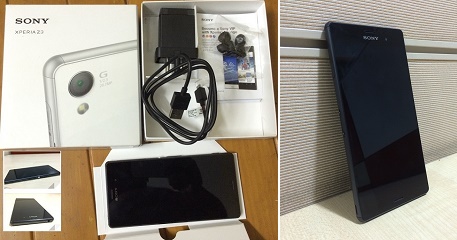
What Is Android Development?
Unless you have been living in a different universe you will know that Android is an operating system used for mobile devices. Around 85% of all mobile devices such as phones and tablets use the Android operating system with the remaining 15% using Apple’s iOS. This makes Android web development a huge business.
The first Android devices were made available in 2008 and it has been growing in strength ever since. The software company that originally designed Android was purchased by Google in 2005 and Google remains as the biggest contributor to the software and markets it commercially. Android today is no longer limited to just a touchscreen phone, you can find it within everything from smart TVs through to various wearables.
An Android developer is someone that develops applications to be used on mobile devices. Many of these can be downloaded from the Google Play Store. Currently, there are more than 2.8 million apps available to use. These vary from games through to apps that can monitor your health or interact with businesses. With more than 4 and a half billion smartphone users out there in the world, the market for apps is almost limitless.
Many companies want to develop apps for their businesses or even for recreational use. To do so they will often have to hire Android app developer talent. But finding an Android app developer for hire that can actually deliver the working app that you are looking for is not always so easy. Many freelancers while offering cheap services may not have the skills and experience that is required to deliver what you are looking for. If you want someone that is worth their Android developer salary you need to ensure that they have the right skills for the job:
What Skills Should Your Android App Developer Possess?
Before you even think about Android developer you must be sure that you fully understand what skills they should possess. If their resume does not contain the right skills and the correct level of experience then you should be looking elsewhere to get the work done, even if they say that they can do the work on the cheap. Paying less is simply not worth it if the app that is delivered is not going to be used by your target market or is not going to deliver the benefits that you were hoping for.
The following are the top 7 skills that your app developer should possess:
- Android Studio knowledge: this is the (IDE) Integrated Development Environment that the majority of developers will rely on. It has much of the functionality of a fully-featured IDE and has excellent support out of the box for most SDKs that you will require to work with. It provides autosuggestion as you type your code to help you get your syntax correct as well as providing you with excellent debugging facilities. It also offers tools that allow you to monitor the device’s performance helping you to ensure your code will run effectively and efficiently.
- Android SDK Knowledge: an SDK is a Software Development Kit. This is probably not the most descriptive name for what they really are. They are prewritten modules of code in Java that allow you to interact with the in-built functions of the device such as its camera as well as with other apps that are commonly worked with such as Facebook. A developer needs to know what these SDKs are and how they can be integrated with your own app.
- Java programing knowledge: this is an object-oriented language that can be a little harder to understand than JavaScript and Ruby. It is a little stricter on how data types are handled and novices may struggle to build apps using it if they lack experience. Your code must be precise and carefully designed if your app is to run efficiently without using excessive amounts of memory.
- XML skills: this is a structured mark-up language that is very similar to HTML that you will find on most websites. It is there to ensure that information passed between devices is consistently understood. Developers will utilize XML in the design of layouts for the UI definition. Once these elements are defined Java can be used to modify them.
- Use of Application Program Interfaces (API): these are pieces of code that allow different applications to talk to each other. This allows you to share information from other apps within your own piece of software. For instance, you may wish to access weather information, a calendar, or even up to date stocks and shares information. The API gives you access to the data provided through these third party services. A common use of Google APIs is for location information allowing your app to deliver information that is geographically local to the user.
- Database use: more often than not, most apps will need to have large amounts of data stored within a database. Some of this data may be stored in the cloud and you will need to sync the required information within the device’s cache allowing it to work offline. No matter what form of the database you will have or how that information needs to be accessed no developer can get by without an in-depth understanding of how to use them.
- Material Design Guidelines: these are being rolled out by Google to try to provide consistent looking design across all Android applications. While these are not compulsory it is recommended by Google that developers become familiar with them and start to use them. This will also ensure that your app users find a common feeling when using your app compared to others.
- Hire The Right Developer for Your Android Application
Creating an app that is going to deliver the usability that your customers want to see is going to require a high level of skill. This is not something that just anyone can deliver. You need to do your homework and take great care to review the resumes of any applicant to build your app. You must ensure that they truly can deliver the look and feel that you want from your successful Android app.








Leave a Reply